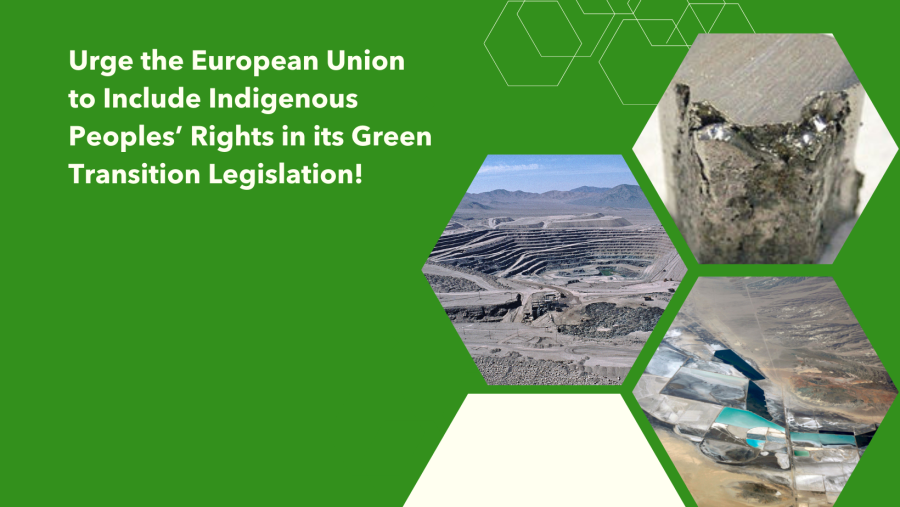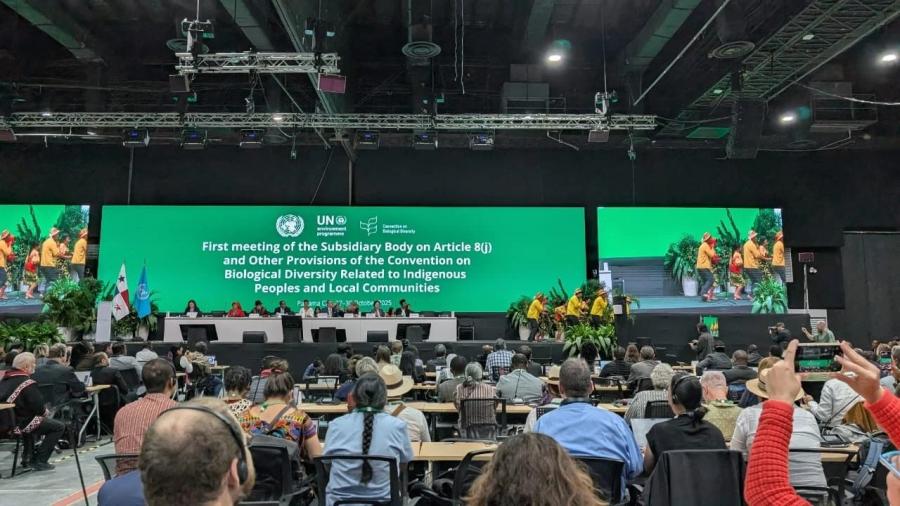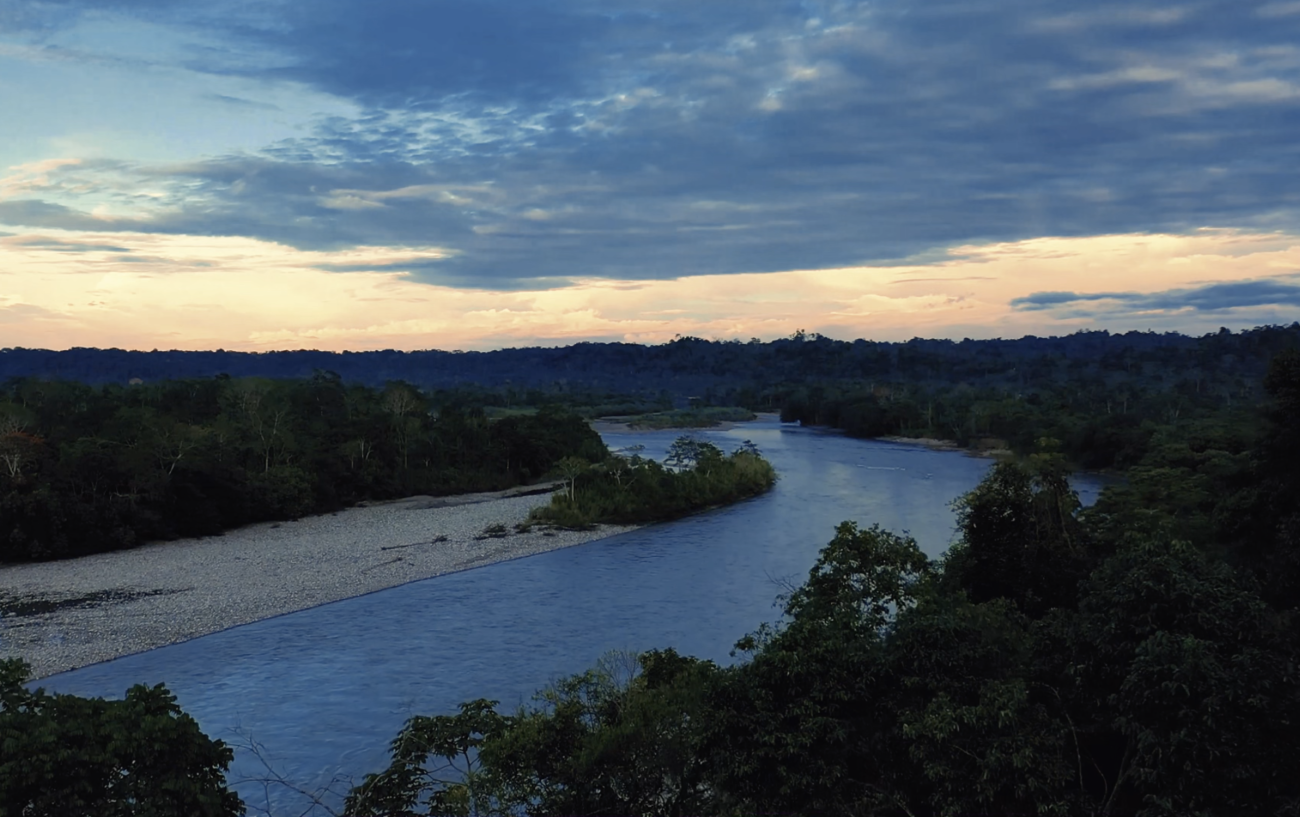
By Daniel Salvador Chindoy Muchavisoy (CS Intern)
In the living hearts of the Ecuadorian Amazon, the Andean mountains of Jujuy, and the arid landscapes of Colombia’s Upper Guajira, three seeds of hope and dignity sprouted in 2024 — nurtured with courage by Indigenous youth who chose to tell their own stories, protect their ancestral memory, and defend the life that inhabits their territories. These processes were made possible through the support of the Cultural Survival Indigenous Youth Fellowship Program, which strengthened the autonomous action of young people committed to their Peoples, languages, forests, waters, and shared dreams.
These three projects — diverse in geography and culture, yet united by the same pulse of resistance — immortalize the truth that defending territory is not only a political act, but also a profound expression of love, memory, and spirituality. They remind us that life flourishes when it is defended with identity, documented with respect, and honored with dignity.
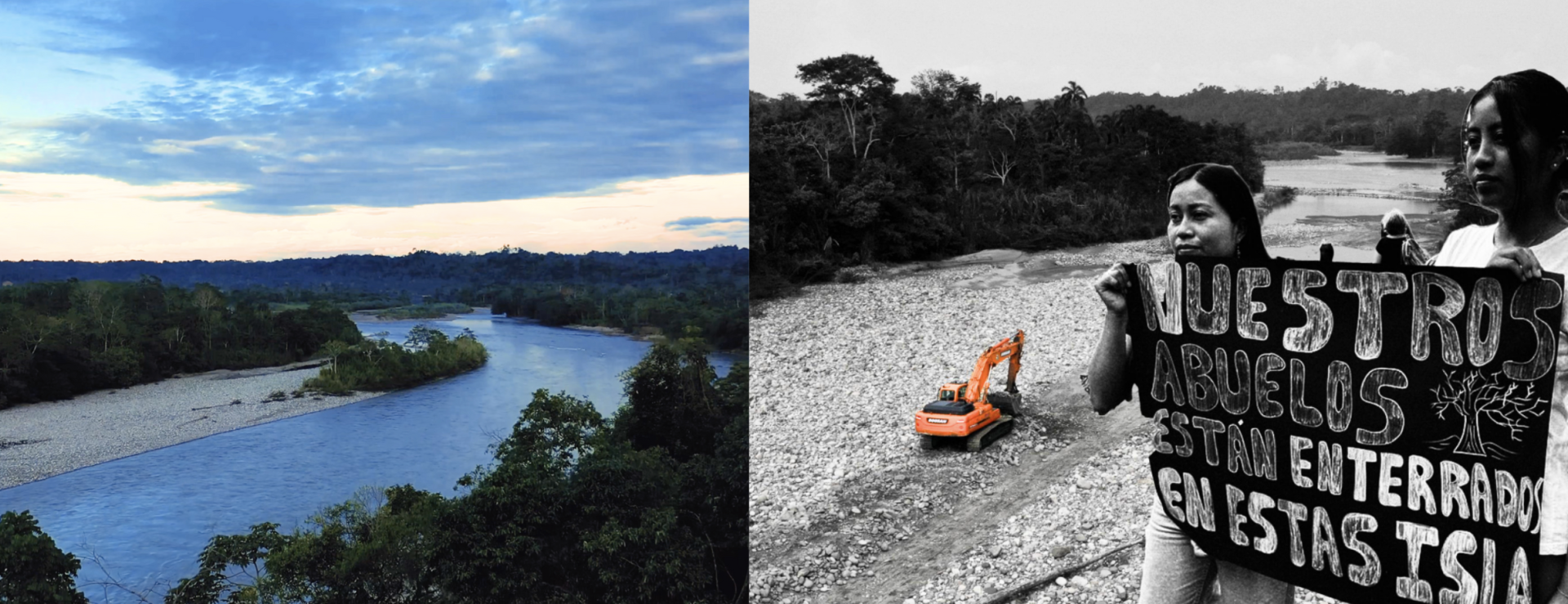
Reclaiming Our Narratives, Reforesting Our Minds: Kichwa Youth of the Napo River Build the Future through Memory, Territory, and Hope
Ecuadorian Amazon, Venecia Derecha community, Napo River
For the first time, Kichwa youth from the Amazonian community of Venecia Derecha, along the majestic Napo River, led a project that became an offering to their living history. Under the name “Reclaiming Our Narratives, Reforesting Our Minds,” they wove a collective process to document the story of their people from within — through their songs, their wounds, their trees, and their hopes.
This initiative took root in response to multiple challenges faced by the Napu Runa-Kichwa people: language loss, domestic violence, food insecurity, mining pollution, and a community fabric weakened by extractivism. Elizabeth Virkina Swanson Andi (Kichwa), an environmental educator, filmmaker, and leader of the process, planted her voice in this path of healing and reaffirmation, inspired by the forest that raised her and the urgent need to tell her story from its roots.
Throughout the year, youth and elders walked together. They carried out intergenerational interviews, collected oral histories, produced short films, and drafted a collective declaration against extractivism. Through geospatial analysis and wisdom walks, they identified key zones of the territory to develop a biocultural monitoring plan. Gatherings around the traditional Wayusa drink, shared songs, and river camps strengthened the community’s spirit and political unity.
“Our story doesn’t begin with mining or end with violence. It begins in the forest, in our language, and in the strength with which we choose to heal and tell it,” says Elizabeth.
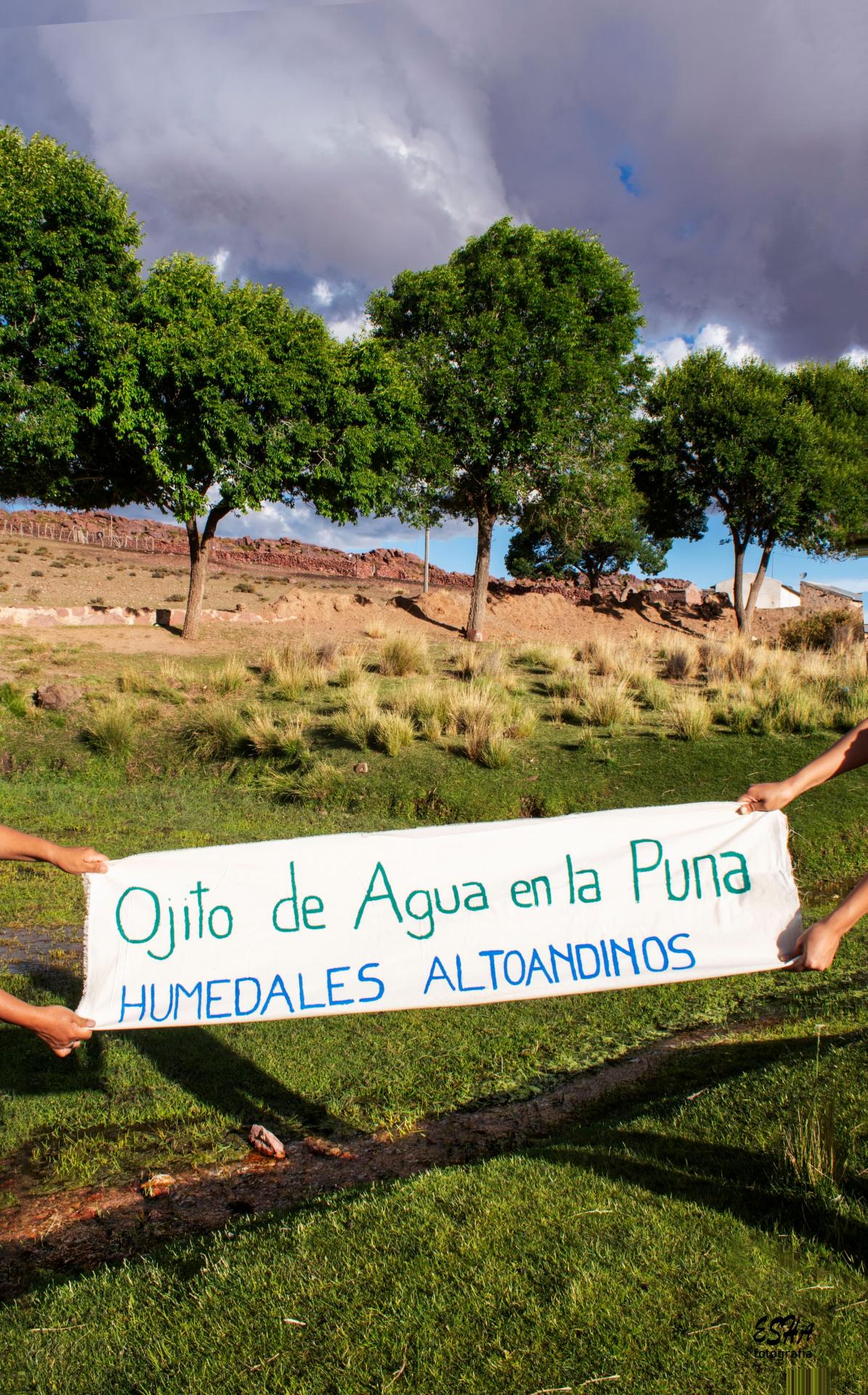
Community Support in Defense of Land, Territory, and the Commons
Province of Jujuy, Argentina. Territory of the Kolla Nation Peoples
Deep in the Andean mountains of Jujuy — amid a hostile context of criminalization, structural racism, and accelerated extractivism — a space of care, connection, and collective resistance emerged. Led by women and non-binary people, this project brought together Indigenous rights defenders, knowledge keepers, and rural women, building a vital support network in the face of state violence and territorial dispossession.
In response to the unconstitutional reform of Jujuy’s provincial constitution and the expansion of lithium extraction in the name of “clean energy,” members of the Chacha Warmi Network, made up of Indigenous professionals, developed technical and legal strategies to defend Indigenous, environmental, and human rights. They created community spaces for training, dialogues, territorial advisory work, and collective actions to sustain life through mutual care.
This process not only provided legal tools but also strengthened memory, art, storytelling, community ties, and the leadership of the families involved. The defense of territory also became a defense of dignity, spirituality, and ancestral wisdom.
“Even if they try to silence us, we keep walking with the certainty that the land is not for sale — it is to be cared for and defended,” says Chacha Warmi Network.
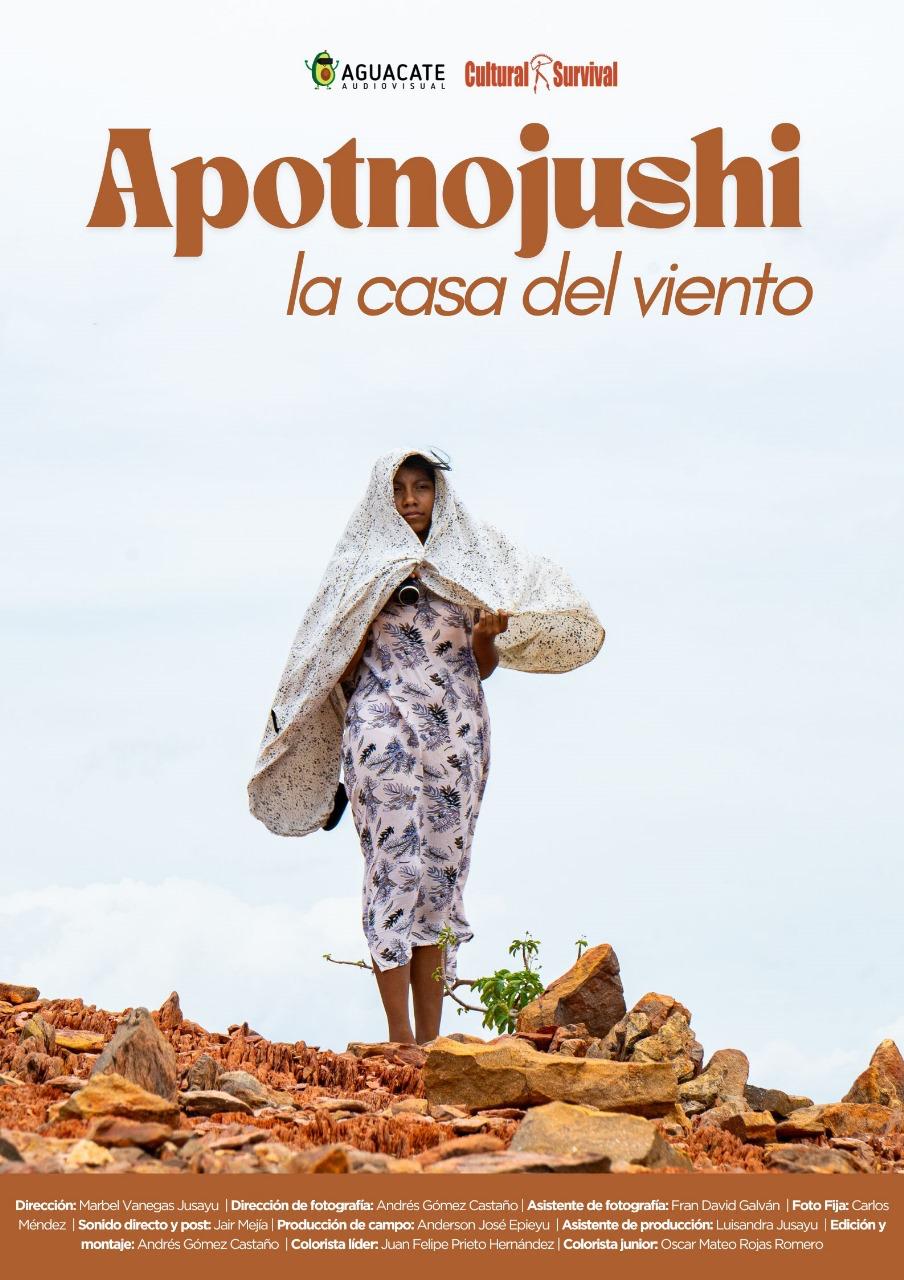
Ishoshi (Red Territory): Memory and Defense from the Heart of the Wayuu Land
Upper Guajira, Colombia. Ancestral Territory of Apotnojushi
Amid the scorching winds of the Guajira desert, the Wayuu people raised their voices to say Ishoshi, which in their language means “red territory.” This project, led by fellow Marbel Inavanegas Jusayu (Wayuu), was the first community audiovisual initiative to document the social, spiritual, and territorial impacts of the installation of a wind farm in Apotnojushi — a community historically excluded from basic services but rich in memory and resistance.
In the face of 14 wind turbines imposed without prior consultation, the project became an urgent act of memory, denunciation, and dignity. Together with elders such as Jesús and Ana Rosa Jusayu, and with the heart of the community’s women, youth, and elders, they created testimonial records, organized visits to other territories affected by megaprojects, and produced a short film affirming their right to decide their present and future.
“Before the towers arrive, we want memory to arrive. We want to leave testimony of who we are and how we choose to care for our territory,” say the women leaders of Apotnojushi.
These three projects reveal the transformative power of Indigenous youth when they have access to tools, support, and autonomy to lead their own narratives. In the face of structural violence, state neglect, and the climate crisis, their voices emerge as seeds of the future, justice, and living memory. From the jungle to the desert, from the Andes to the Napo, from the ceremonial fire to the recorded word — Indigenous youth are rewriting history through love for their peoples and the defense of life. May these experiences continue to inspire, grow, and bloom — because when the roots run deep, not even the strongest wind can uproot them.
